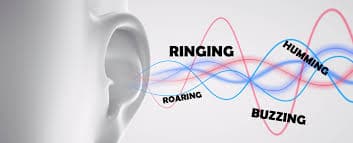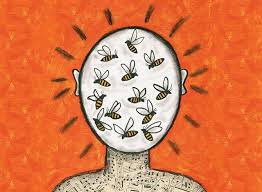Over the next months, I will be uploading some commonly viewed FAQs from MusiciansClinics.com. This is the website of the Musicians’ Clinics of Canada, and was completely updated over the last Christmas holidays. I should have entitled it “What I did over the Christmas holidays”! A full range of FAQs will eventually cover pretty much everything we know about music and the prevention of hearing loss.
Feel free to submit other questions that can be answered in 4-5 sentences and I may include them in future posts…
Why do I occasionally get tinnitus?
Tinnitus is a symptom of possible damage to the ear- possibly because of overexposure to loud music. However, the ear is very resilient and tinnitus typically recovers within a matter of 3 or 4 days (where a temporary hearing loss will typically resolve within 16-18 hours). If you frequently get a period of tinnitus after a loud set, if at all possible try not to play another gig for several days, and definitely consider wearing musician earplugs. Even the ER-15 earplugs can extend the amount of time you spend around loud music by a factor of 32 times.
I have had tinnitus for two years. Is my drumming career over?
Tinnitus is almost always associated with some hearing loss. Treating the hearing loss may result in “treating the tinnitus”. Most people find that some external noise (either from a hearing aid or from a “tinnitus masker”) tends to block out the tinnitus. That’s why many people with tinnitus do not find that it is as bothersome when there is background noise. Many musicians find that external noise allows them to play and enjoy their music. In fact, there is a type of tinnitus therapy called Tinnitus Retraini ng Therapy (TRT) that has been shown to be successful for many musicians.
ng Therapy (TRT) that has been shown to be successful for many musicians.
So what is Tinnitus Retraining Therapy (TRT)?
Tinnitus is actually created in the brain- not the ear. The hearing loss (from too much loud music) causes the nerve endings in the ear to become damaged. The brain cells that receive the impulses from these nerve endings say “where is the sound??” These cells become “lonely” and start to generate their own sound. TRT is a method that involves counselling and the use of a noise generator (or masker). The cells in the brain say “Oh! Here is the sound” and gradually (after a year or so) stop producing their own noise. The tinnitus dies away (or at least becomes less bothersome and noticeable). Many audiologists offer this type of tinnitus therapy. You should consult your local audiologist for more information.








Hello,
I haven’t seen any question yet about hearing aids that work especially well for musicians. I’m a classically trained singer, and also a pianist. I have moderately severe to severe hearing loss in one ear, and mild to severe in the other. I’m hoping to find a hearing aid that can amplify without distortion.
I typically don’t use forums like this to discuss these issues. Your local audiologist can assist you with this since they know your hearing issues infinitely better than I do. Rest assured that there are hearing aids that have been optimized for both speech and for music.